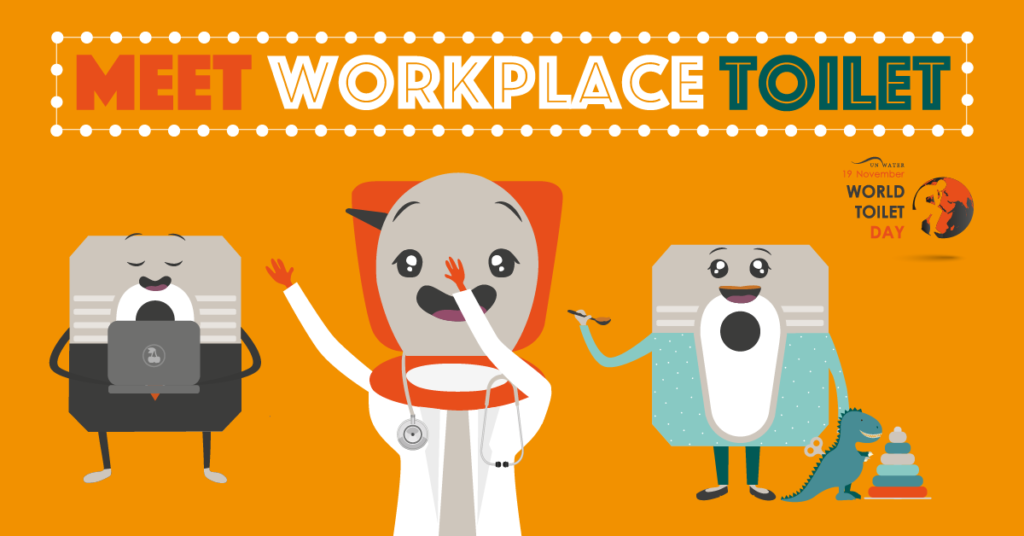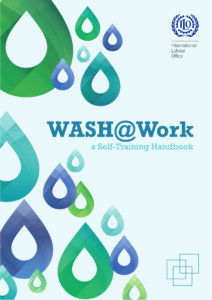2016 World Toilet Day highlights the need for better workplace and urban water and sanitation
On 19 November 2016, World Toilet Day was celebrated around the world behind the theme ‘toilets and jobs’ to generate awareness about the need for access to water, sanitation and hygiene (WASH) for better health and productivity at work. The day also marked the launched WaterAid’s second annual report on the state of the world’s toilets titled, ‘Overflowing cities: The State of the World’s Toilets 2016’.
 On 19 November 2016, World Toilet Day was celebrated around the world behind the theme ‘toilets and jobs‘ to generate awareness about the need for access to water, sanitation and hygiene (WASH) for better health and productivity at work.
On 19 November 2016, World Toilet Day was celebrated around the world behind the theme ‘toilets and jobs‘ to generate awareness about the need for access to water, sanitation and hygiene (WASH) for better health and productivity at work.
 To commemorate the day, UN-Water developed materials to help promote the theme including posters and fact sheets in six languages and as part of the WASH4Work initiative, worked with the International Labour Organization (ILO) to develop a self-training module on occupational safety and health. The self-training toolkit aims to help governments, workers and employers implement the ILO’s standards and codes of practices on water, sanitation and hygiene. Download the Toolkit.
To commemorate the day, UN-Water developed materials to help promote the theme including posters and fact sheets in six languages and as part of the WASH4Work initiative, worked with the International Labour Organization (ILO) to develop a self-training module on occupational safety and health. The self-training toolkit aims to help governments, workers and employers implement the ILO’s standards and codes of practices on water, sanitation and hygiene. Download the Toolkit.
The day also marked the launched WaterAid’s second annual report on the state of the world’s toilets titled, ‘Overflowing cities: The State of the World’s Toilets 2016’. For the first time in history, more than half of the world’s population lives in towns, cities and megacities. By 2050, that’s expected to rise to two-thirds. That is why the report seeks to prompt action to expand access of safe sanitation to the 700 million of the world’s poorest people who currently live in urban areas without a basic toilet. To put that into context, the queue for people waiting for toilets in our cities and towns would stretch around the world 29 times. There is tremendous progress happening in some cities and countries, but politics, patchy coverage, land tenure issues, inadequate systems and technical challenges stand in the way.
Read the latest Capacity 4 Development blog on “Linking Toilets and Nutrition for Stronger, Healthier Lives” which was inspired by experts and practitioners discussing how to scale up progress by linking nutrition and WASH policies and implementation and overcoming barriers between sectors.
